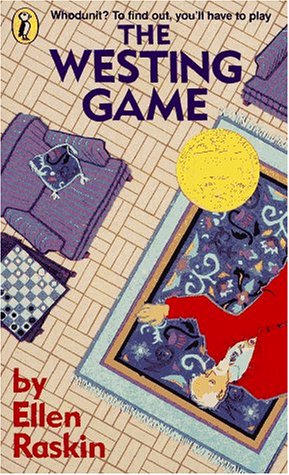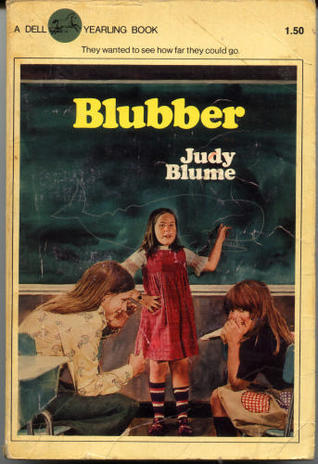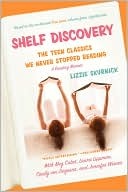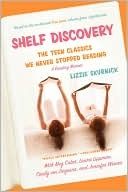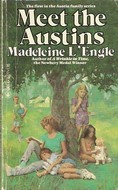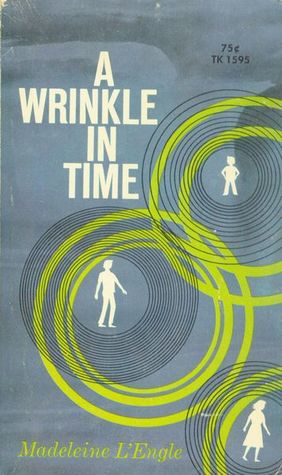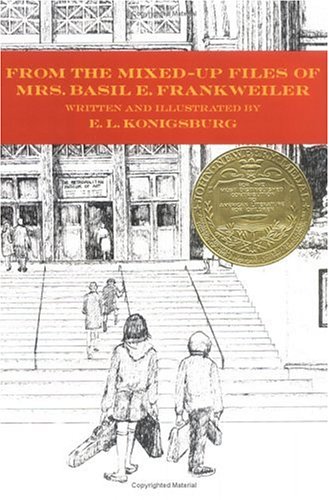I’ve told everyone I know and their cousin (and all MY cousins) about my summer reading project, which started last week. It’s to read one chapter of Lizzie SKurnick’s reading memoir Shelf Discovery per week, plus one of the books she writes about in that chapter.
But this isn’t one of those online book challenges with tons of rules or restrictions. This is supposed to be fun and easy. You don’t need to read Shelf Discovery to appreciate re-reading these books. The easiest way to participate would be to scan through this list, see which books look good, re-read them, and visit the blog on the date of “discussion” in the comments.
On Monday June 18 we’ll be commenting on
Are You There, God? It’s Me, Margaret by Blume, Judy
Blubber by Blume, Judy
Tiger Eyes by Blume, Judy
Then Again, Maybe I Won’t by Blume, Judy
Sister of the Bride by Cleary, Beverly
Cat Ate My Gymsuit by Danziger, Paula
The Long Secret by Fitzhugh, Louise
A Ring of Endless Light by L’Engle, Madeleine
And You Give Me a Pain, Elaine by Pevsner, Stella
Caroline by Roberts, Willo Davis
To Take a Dare by Zindel, Paul and Dragonwagon, Crescent
For Monday June 25
Chapter 3 “Danger Girls: I Know What You Did Last Summer (Reading)”, and pick one:
Secret Lives by Amoss, Berthe
I Am the Cheese by Cormier, Robert
Daughters of Eve by Duncan, Lois
Summer of Fear by Duncan, Lois
The Arm of the Starfish by L’Engle, Madeleine
Dragons in the Waters by L’Engle, Madeleine
The Westing Game by Raskin, Ellen
The Grounding of Group 6 by Thompson, Julian F.
For Monday July 2
Chapter 4 “Read ‘Em and Weep: Tearing Up the Pages”, and pick one:
The Gift of the Pirate Queen by Giff, Patricia Reilly
Summer of My German Soldier by Green, Bette
Beat the Turtle Drum by Greene, Constance C.
Jacob Have I Loved by Paterson, Katherine
Bridge to Terabithia by Paterson, Katherine
A Day No Pigs Would Die by Peck, Robert Newton
Tell Me if the Lovers are Losers by Voigt, Cynthia
The Pigman by Zindel, Paul
For Monday July 9
Chapter 5 “You Heard It Here First: Very Afterschool Specials”, and pick one:
Go Ask Alice by Anonymous
Deenie by Blume, Judy
It’s Not the End of the World by Blume, Judy
Are You in the House Alone? by Peck, Richard
Don’t Hurt Laurie! by Roberts, Willo Davis
For Monday July 16
Chapter 6 “Girls Gone Wild: Runaways, Left Behinds and Ladies Living Off the Fat of the Land”, and pick one:
Understood Betsy by Fisher, Dorothy Canfield
Julie of the Wolves by George, Jean Craighead
The Endless Steppe: A Girl in Exile by Hautzig, Esther
Island of the Blue Dolphins by O’Dell, Scott
The Witch of Blackbird Pond by Speare, Elizabeth George
Homecoming by Voigt, Cynthia
Little House on the Prairie by Wilder, Laura Ingalls
For Monday July 23
Chapter 7 “She Comes by It Supernaturally: Girls Who Are Gifted and Talented”, and pick one:
Jane-Emily by Clapp, Patricia
A Gift of Magic by Duncan, Lois
Stranger with my Face by Duncan, Lois
Down a Dark Hall by Duncan, Lois
Hangin’ Out with Cici by Pascal, Francine
Ghosts I Have Been by Peck, Richard
Girl with the Silver Eyes by Roberts, Willo Davis
For Monday July 30
Chapter 8 “Him She Loves: Romanced, Rejected, Affianced, Dejected”, and pick one:
Forever by Blume, Judy
Fifteen by Cleary, Beverly
To All My Fans, With Love, From Sylvie by Conford, Ellen
The Moon by Night by L’Engle, Madeleine
In Summer Light by Oneal, Zibby
Happy Endings are All Alike by Scoppetone, Sandra
My Darling, My Hamburger by Zindel, Paul
For Monday August 6
Chapter 9 “Old Fashioned Girls: They Wear Bonnets, Don’t They?” Pick one:
Wolves of Willoughby Chase by Aiken, Joan
An Old Fashioned Girl by Alcott, Louisa May
The Secret Garden by Burnett, Frances Hodgson
A Little Princess by Burnett, Frances Hodgson
Belles on the Their Toes by Carey, Ernestine Gilbreth
Cheaper by the Dozen by Gilbreth, Jr, Frank B.
All of a Kind Family by Taylor, Sydney
For Monday August 13
Chapter 10 “Panty Lines: I Can’t Believe They Let Us Read This”, and pick one:
My Sweet Audrina by Andrews, V.C.
Flowers in the Attic by Andrews, V.C.
Clan of the Cave Bear by Auel, Jean
Wifey by Blume, Judy
Domestic Arrangements by Klein, Norma
Monday August 20: Discuss the book as a whole, and the re-reading/reminiscing experience.

